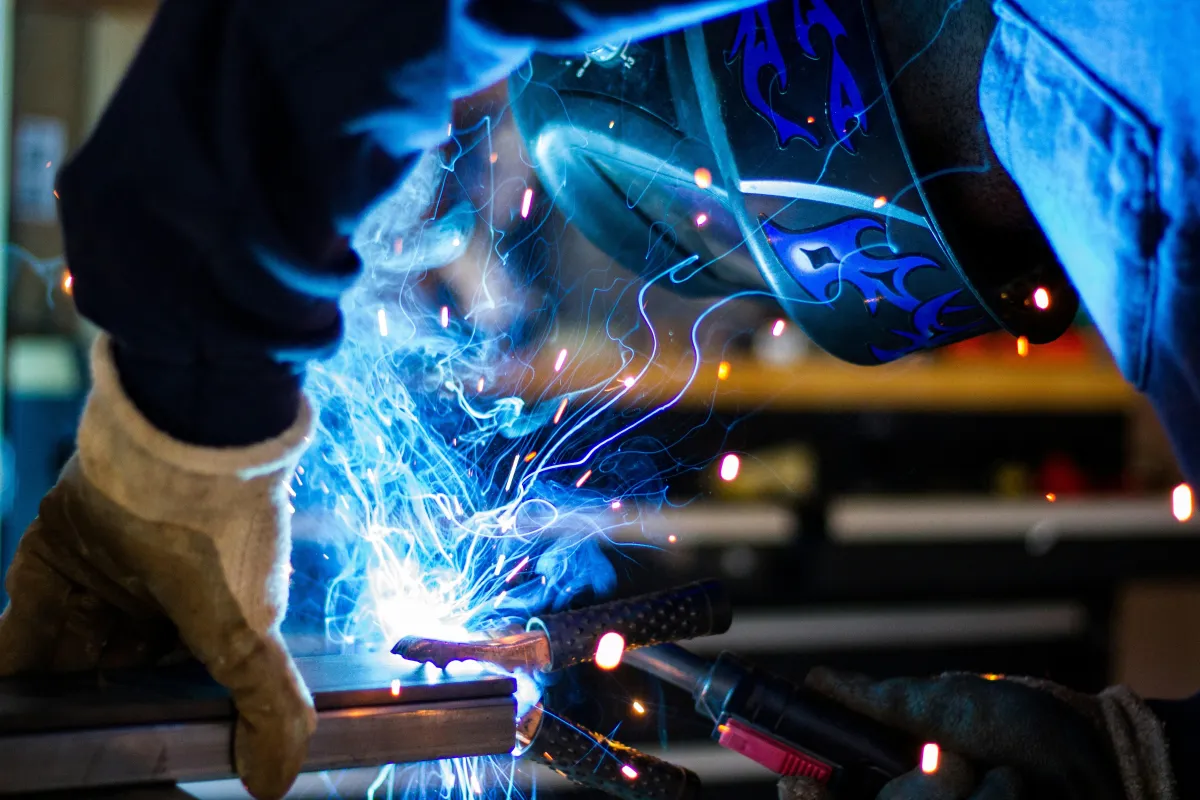Blog

Industrial Metaverse: A Tech Marvel for Cost and Carbon Footprint Control
The industrial metaverse marks a paradigm shift in the application of metaverse technologies within industrial domains. It amalgamates the digital and physical realms, revolutionizing processes across engineering, manufacturing, and field service operations. At its core, the industrial metaverse fosters real-time collaboration, connectivity, and spatial awareness within industrial environments, ushering in a new era of efficiency and innovation.
Driving Innovation Through Immersive Technologies
One of the key tenets of the industrial metaverse is its ability to serve as a transformative catalyst for innovation. By leveraging immersive technologies hosted in the cloud, organizations can reimagine traditional practices and redefine how humans and machines collaborate. Through processes such as optimization, simulation, digital analysis, and AI-driven predictions, the industrial metaverse empowers industries to enhance sustainability and efficiency like never before.
Digital Twins and Virtual Collaboration: Revolutionizing Operations
Central to the industrial metaverse are tools such as digital twins and virtual collaboration platforms. These technologies enable businesses to create virtual replicas of physical assets, processes, or systems, providing invaluable insights and predictive capabilities. By leveraging digital twins, companies gain the ability to simulate scenarios, identify potential bottlenecks, and optimize operations in real time. Moreover, virtual collaboration platforms facilitate seamless communication and knowledge sharing among stakeholders, driving agility and innovation across the organization.
Embracing the Industrial Metaverse
Numerous companies have embraced the industrial metaverse to transform their operations and drive competitive advantage. Take, for instance, the Coca-Cola Hellenic Bottling Company, which utilizes digital twins to optimize its manufacturing processes and enhance supply chain resilience. By leveraging real-time data insights, Coca-Cola can anticipate demand fluctuations, streamline production, and minimize downtime, ultimately delivering superior customer experiences.
Similarly, Mercedes-Benz has embraced the industrial metaverse to empower its factory workers and drive process innovation. Through immersive training simulations and virtual collaboration tools, employees gain access to critical knowledge and resources, enabling them to troubleshoot issues, iterate on designs, and drive continuous improvement. As a result, Mercedes-Benz has achieved greater operational efficiency and agility, positioning itself as a leader in the automotive industry.
The industrial metaverse is rapidly expanding its reach across diverse sectors, spanning manufacturing, healthcare, retail, energy, and sustainability. Its integration enhances visibility, flexibility, contingency planning, and risk management, fundamentally reshaping operational technology landscapes. At the forefront of this transformation are digital twins, a key application driving innovation within the industrial metaverse.

Addressing Carbon Emissions: A Sustainability Imperative
The industrial metaverse presents a potent tool in the global effort to reduce carbon emissions through various mechanisms:
Remote Operations: By facilitating remote monitoring and repair of facilities, the industrial metaverse minimizes the need for emissions-intensive travel, thereby contributing to environmental conservation.
Efficiency in Manufacturing: Preventing machine downtime through proactive measures enabled by the industrial metaverse reduces the emissions associated with building and operating backup machines, fostering a more sustainable production process.
Optimized Logistics: Leveraging the metaverse, transport companies can model their networks with greater efficiency, curbing unnecessary operations of trucks and planes and subsequently lowering emissions.
System Modeling: Companies utilizing the industrial metaverse can map out their industrial systems to identify the most efficient operational pathways, leading to significant energy savings and emission reductions.
These applications underscore the pivotal role of the industrial metaverse in advancing sustainability agendas by enhancing operational efficiency and productivity.
Examples of Industrial Metaverse Utilization
Numerous companies are leveraging the industrial metaverse to drive innovation and efficiency across sectors:
Siemens: Focused on transport, infrastructure, and energy verticals, Siemens employs digital twins within the metaverse for development purposes, particularly in industrial contexts.
Ford: Utilizing the metaverse for research and development in vehicle design, safety testing, and manufacturing optimization, Ford harnesses virtual reality simulations to streamline processes and enhance product quality.
Coca-Cola Hellenic Bottling Company: Transforming operations with digital twins and virtual collaboration, Coca-Cola enhances supply chain predictability and resilience, exemplifying the tangible benefits of the industrial metaverse in real-world applications.
These examples highlight the versatility and impact of the industrial metaverse across diverse industries, fostering efficiency, innovation, and collaboration.

Key Players in the Industrial Metaverse Landscape
Several key players are driving the development and adoption of industrial metaverse technologies:
Siemens AG: A leader in industrial automation and digitalization, Siemens plays a pivotal role in shaping the industrial metaverse landscape.
Microsoft Corporation: Known for its Azure cloud computing platform and mixed reality technologies like HoloLens, Microsoft contributes to the advancement of the metaverse ecosystem.
NVIDIA Corporation: Specializing in AI and graphics processing, NVIDIA's powerful GPUs and AI platforms enhance the capabilities of the industrial metaverse.
PTC Inc: Providing software solutions for digital twin creation and immersive virtual environments, PTC facilitates the integration of metaverse technologies.
Bentley Systems, Inc: Offering comprehensive software solutions for infrastructure advancement, including digital twin technologies, Bentley Systems is instrumental in driving metaverse innovation.
Dassault Systèmes SE: Renowned for its 3D design software and product lifecycle management solutions, Dassault Systèmes contributes expertise to the industrial metaverse domain.
HTC Corporation and Magic Leap, Inc: Developing virtual reality devices and wearable technology, HTC and Magic Leap expand the accessibility and usability of the industrial metaverse.
These companies collectively drive the evolution of the industrial metaverse through their innovative solutions and collaborative efforts.
Case Study: Jakruv Heavy Equipment Inc.
Jakruv Heavy Equipment Inc. exemplifies the transformative impact of industrial metaverse technology on operational efficiency:
Digital Twins: By creating digital replicas of heavy machinery, Jakruv enables real-time monitoring and simulation, optimizing maintenance processes and extending equipment lifespan.
Virtual Prototyping: Utilizing the metaverse for virtual testing and prototyping, Jakruv accelerates design iterations, reducing time-to-market and resource consumption.
Remote Collaboration: AR and VR-enabled collaboration tools facilitate seamless communication among distributed teams, fostering innovation and problem-solving capabilities.
Training and Safety: Virtual training programs enhance employee skills in a safe environment, promoting continuous learning and adherence to safety protocols.
Jakruv's experience underscores the transformative potential of the industrial metaverse in streamlining operations, reducing costs, and fostering a culture of innovation and safety.
Conclusion
The industrial metaverse represents a paradigm shift in how industries operate and innovate, bridging the gap between the physical and digital realms. Its transformative capabilities empower businesses to create, test, and manage products and processes in virtual environments, leading to increased efficiency, reduced costs, and improved sustainability. While still in its nascent stages, the industrial metaverse holds immense potential to revolutionize various industries, driving progress and prosperity in the digital age.
Subscribe to our Newsletter
Metaverse insights and opportunities, Community events, and projects straight to your inbox!

Copyright©Metameta Digital. Powered by Partner2pilot. All Rights Reserved.

